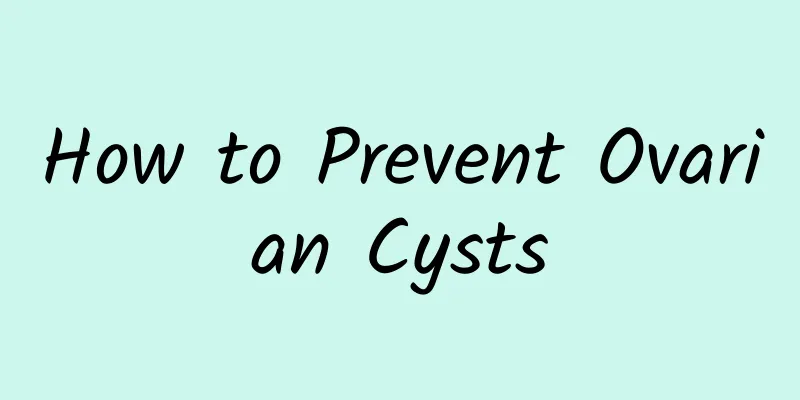How to Prevent Ovarian Cysts

|
Ovarian cysts are a common gynecological disease, which refers to cystic structures inside or on the surface of the ovaries. These cystic structures can be one or more, benign or malignant, and vary in size. Ways to prevent ovarian cysts include the following: 1. Maintain good living habits: maintain a regular work and rest schedule and avoid staying up late; maintain good eating habits, eat more vegetables and fruits, and eat less spicy and irritating foods; quit smoking and limit alcohol consumption to avoid inhaling secondhand smoke. 2. Adhere to proper exercise: Proper exercise can promote metabolism and blood circulation, which helps prevent the occurrence of ovarian cysts. It is recommended to do at least 150 minutes of moderate-intensity aerobic exercise per week, such as brisk walking, swimming, cycling, etc. 3. Control your weight: Obesity increases the risk of ovarian cysts, so you should maintain a healthy weight and avoid being overweight. It is recommended to control your weight through a reasonable diet and proper exercise. 4. Avoid long-term mental stress: Long-term mental stress may lead to endocrine disorders, affect ovarian function, and increase the risk of ovarian cysts. You should learn to regulate your emotions, relieve stress, and maintain a happy mood. 5. Regular gynecological examinations: Regular gynecological examinations can detect ovarian cysts early and avoid missing the best time for treatment. It is recommended to have a gynecological examination once a year. 6. Avoid abusing drugs and health products: Abuse of drugs and health products may lead to endocrine disorders, thereby increasing the risk of ovarian cysts. Avoid abusing drugs and health products, especially those containing hormones. 7. Pay attention to personal hygiene: keep the vulva clean and dry, wash the vulva with warm water every day, change underwear frequently, and avoid using strong irritating detergents. Prevention of ovarian cysts requires multiple approaches, including maintaining good living habits, exercising properly, controlling weight, avoiding long-term mental stress, and undergoing regular gynecological examinations. At the same time, women should pay attention to their physical condition and detect and treat ovarian cysts in a timely manner. |
>>: Do you always want to urinate after pelvic effusion? What are the symptoms of pelvic effusion?
Recommend
Treatment of pelvic peritonitis
We all know that many diseases can be treated wit...
How to distinguish between hydatidiform mole and choriocarcinoma
Hydatidiform mole and choriocarcinoma are two dif...
Brief analysis of important precautions for adnexitis
During the treatment and recovery of adnexitis pa...
What are the symptoms of dysmenorrhea in girls?
Everyone should have a certain understanding of d...
The incidence of physiological ovarian cysts
The incidence of physiological ovarian cysts is h...
Beware of possible ovarian cyst symptoms in women
Many women do not know much about gynecological d...
What are the treatments for patients with cervical erosion?
Excessive vaginal cleaning or multiple abortions ...
Will you lose weight if you exercise? 4 weight loss myths to understand at once
"I eat the same as before, but I exercise no...
Detailed introduction and impact of blocking antibodies
Inhibitory antibodies: Normal pregnant women have...
There are 2 obvious symptoms of cervicitis
Cervicitis is a common gynecological disease in w...
How often do cervical warts recur?
As society becomes more open, it has also led to ...
What to do if a woman with cervical erosion becomes pregnant
Cervical erosion is a common gynecological diseas...
What are the characteristics of menopause?
Many women will have great changes in temper duri...
What are the symptoms of Bartholinitis?
What are the hazards of Bartholinitis? Bartholini...
Reduce visceral fat! Remember 3 habits + 2 massage methods
Modern people lead busy lives and are unable to e...









